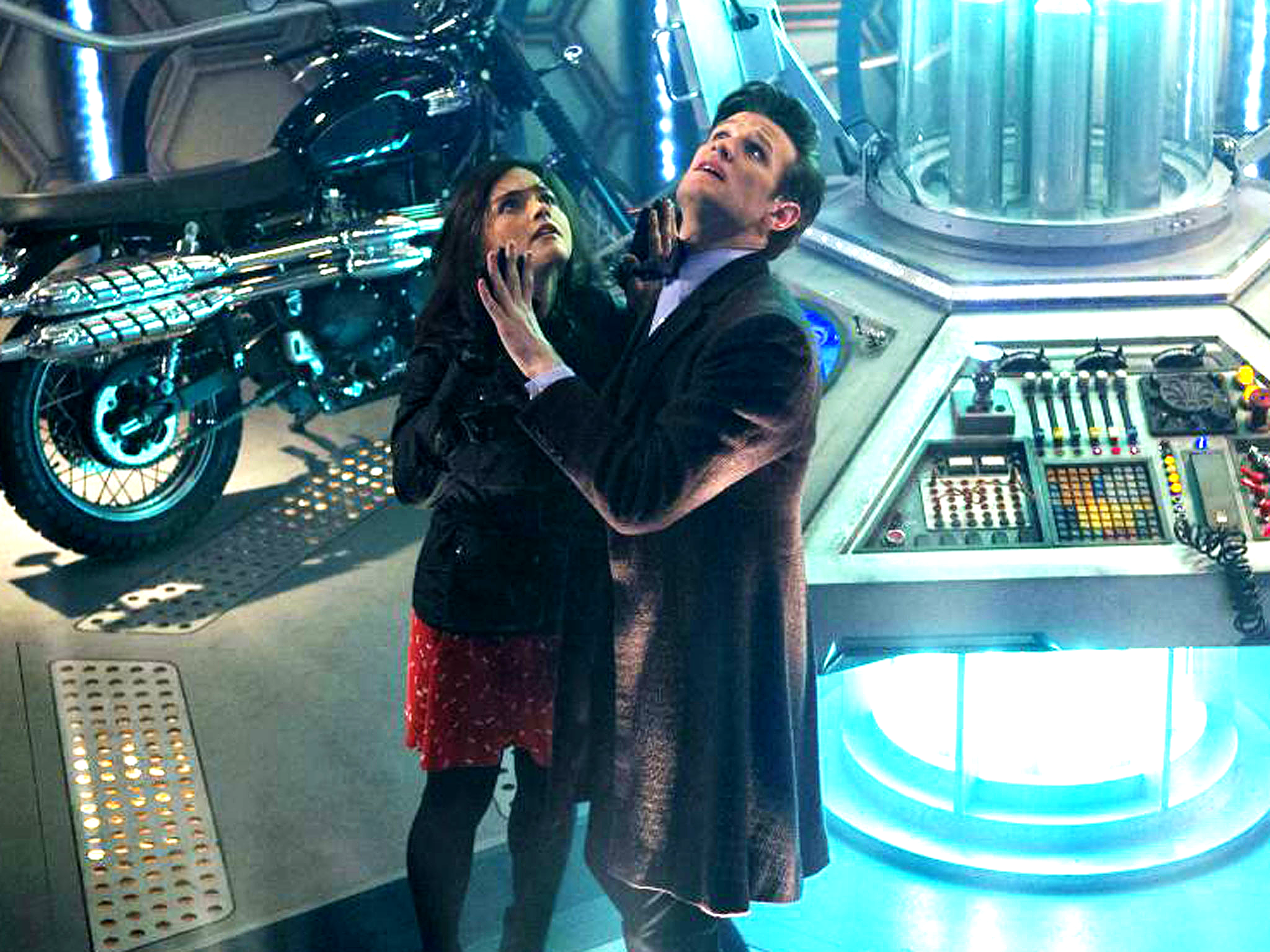Doctor Who: Day of the Doctor - who says it has to make sense? It’s a triumph!
Aliens, queens, and too many Doctors to count –avid Whovian John Rentoul is in Tardis heaven

Your support helps us to tell the story
From reproductive rights to climate change to Big Tech, The Independent is on the ground when the story is developing. Whether it's investigating the financials of Elon Musk's pro-Trump PAC or producing our latest documentary, 'The A Word', which shines a light on the American women fighting for reproductive rights, we know how important it is to parse out the facts from the messaging.
At such a critical moment in US history, we need reporters on the ground. Your donation allows us to keep sending journalists to speak to both sides of the story.
The Independent is trusted by Americans across the entire political spectrum. And unlike many other quality news outlets, we choose not to lock Americans out of our reporting and analysis with paywalls. We believe quality journalism should be available to everyone, paid for by those who can afford it.
Your support makes all the difference.‘I won’t remember this, will I?” asks John Hurt, towards the end of this epic. I knew how he felt. I won’t remember much of how Steven Moffat, who wrote and produced an almost feature-length episode, managed to pull together the strands of a half-century of a fictional universe, as if the whole series made sense, before pushing it off in new directions at the end.
It was a triumphant achievement, loyal to the spirit of the whole Doctor Who enterprise, which started as just a teatime sci-fi serial for the BBC, with an educational mission to use the device of time travel to teach children about history, but which caught on, and grew and spread in unlikely directions, regenerating with a succession of new central characters. Often it didn’t make much sense, and last night’s story was as daftly implausible as the series has always been.
Yet it clings, it sticks in the mind because the central ideas work like memes, like self-replicating alien intelligences. The cantankerous Doctor, mysterious, brilliant, non-violent. The companion, apparently subordinate but then suddenly in charge as the Doctor finds the burden of living so long too heavy. The Tardis, bigger on the inside. And the alien enemies, different ones or the same ones changing shape and sometimes turning out to be goodies in disguise.
All those themes were worked into The Day of the Doctor, a story that veered off into the ridiculous. Two Queen Elizabeths, one a shape-shifting alien and the other madly in love with the Doctor – the David Tennant one, see, I was paying attention – so madly that they got married in secret but outdoors, outside the Tower of London. But never mind, because the story crashed on, with the absurd, the comic and portentous all hurrying doubts about the accuracy of the Tudor period out of mind.
So, no, I won’t remember much of it. But it started with the junkyard in Totters Lane, where William Hartnell mysteriously disappeared into a police phone box in the very first episode, 23 November 1963, with the school nearby where, it turns out, Clara, the current companion, has been all along – she was interpolated into some black-and-white scenes from the early programmes a few episodes back just to establish that she had always been there.
Thus Moffat brought the whole story together, taking one of its recurrent dramatic features, the Doctor’s mysterious sadness about the Time War, in which all his time-lord people died, and turning it into the drama itself. Using time to make the plot work, like adding water to Cup a Soup, as Matt Smith said, to the disgust of curmudgeon-Doctor John Hurt. Because it turns out that all the doctors, all 12 or 13 of them – I’m beginning to lose count – have been working all these hundreds of years on a calculation that will allow them to save their planet and their time-lord people.
So the whole series, all 50 years of it, portraying a character supposedly 900 or 1,200 years old (even Matt Smith couldn’t remember), became a means by which the regenerating doctors, all assembled on stage for the finale, could simultaneously learn their lesson, that war is bad, especially if time-lord civilians are killed, and have time to avert it.
No, it doesn’t have to make actual sense, but it made emotional sense and if time travel is possible, then everything else is.
Join our commenting forum
Join thought-provoking conversations, follow other Independent readers and see their replies
Comments